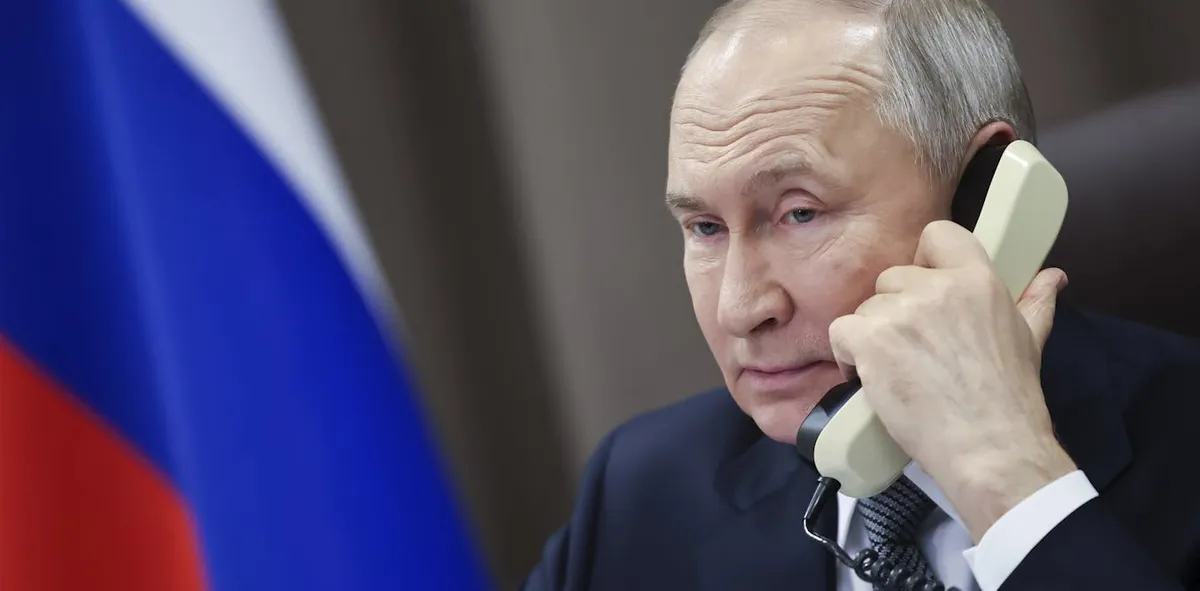
In a recent phone call between US President Donald Trump and Russian President Vladimir Putin, little progress was made towards resolving the ongoing hostilities in Ukraine. Instead, the conversation further highlighted Putin’s strategic ability to manipulate the situation to his advantage. The initial indication of this power play was evident when Putin kept Trump waiting for over an hour while he participated in a televised conference with Russian business figures. This delay not only underscored Putin’s dominance but also served as a public demonstration of his status, both to the Russian populace and to Trump himself.
Reports indicate that Trump’s special envoy, Steve Witkoff, endured an even longer wait, being delayed for eight hours upon his arrival in Moscow for discussions. Following the phone call, Putin's agreement to pause attacks on Ukraine’s energy infrastructure for 30 days, rather than committing to the comprehensive ceasefire proposed by Trump and accepted by Ukrainian President Volodymyr Zelensky, raises questions. The Kremlin's lengthy statement clarified that this pause applies solely to energy infrastructure attacks, contrasting with the vaguer interpretation provided by the White House, which suggested a broader agreement.
This discrepancy between the Kremlin's and White House's narratives is concerning. The Kremlin’s assertion that Trump proposed the idea of a limited pause seems implausible, as agreeing to this partial ceasefire is a relatively low-cost concession for Russia. This suggests that the proposal likely originated from Putin, framed as a “compromise,” despite Trump previously threatening serious consequences if Russia did not agree to a full ceasefire.
Despite the supposed pause in attacks, Russia retains the capability to continue its ground offensive in Ukraine, where they enjoy a tactical advantage, largely due to Ukrainian manpower shortages. This ongoing conflict has already resulted in significant civilian casualties, potentially up to 100,000 lives lost, and reconstruction costs that could reach half a trillion US dollars. In contrast, Ukraine has only infrequently targeted residential areas in Russia but has successfully conducted long-range drone strikes on Russian energy sources, threatening key funding channels for Moscow’s military efforts.
The Kremlin's read-out from the call identified numerous obstacles to achieving a comprehensive ceasefire in Ukraine. Among these was the claim that the Kyiv government has failed to engage in negotiations in good faith, allegedly undermining and violating previously established agreements. In an ironic twist, the Kremlin accused Ukrainian militants of committing “barbaric terrorist crimes” in regions of Russia previously occupied by Ukraine, a statement reflecting a remarkable level of audacity given Russia's own history of violating treaties and international humanitarian laws.
The fact that a US president would allow such claims from the Kremlin to go unchallenged highlights a significant shift in the White House's approach to Ukraine. The Kremlin further emphasized that the cessation of foreign military aid and intelligence to Ukraine is a crucial prerequisite for continuing negotiations. Given Trump’s historical freezing of arms and intelligence support to Ukraine, it raises concerns that he might repeat this action, thereby increasing Russia’s leverage in future discussions.
Trump has already compromised on critical negotiation points, including holding discussions without Ukraine's presence and suggesting that Ukraine might need to cede sovereign territory, undermining international law. With Putin showing no intention of deviating from his primary objectives—reasserting Russian control over Ukraine and retaining illegally annexed territories—the situation remains precarious. Moscow’s formal treaties to incorporate these regions highlight the imperialistic nature of the conflict.
In response to the Trump-Putin call, Ukraine has cautiously accepted a limited ceasefire, likely to avoid angering Trump. However, Ukraine remains steadfast in its position: its territorial integrity and sovereignty are non-negotiable. The nation insists it should have the autonomy to select its foreign alliances and partnerships, and it must be allowed to defend itself without restrictions on military size or armament.
Ultimately, the only feasible resolution may involve freezing the conflict at current front lines, leaving the status of annexed regions to be decided in future negotiations. However, such an arrangement would lack credibility unless Russia rescinds its annexations and permits international organizations to monitor compliance with international law.